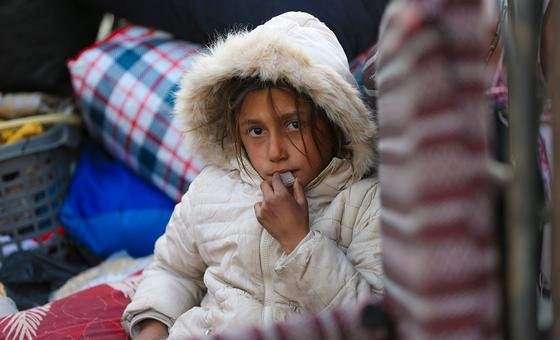Shabia Mantu, spokeswoman for the UN refugee agency – UNHCR, said in Geneva on Tuesday that people forced to flee the country by the 13-year civil war are now considering returning to Syria.
But they also face questions about how safe their return will be and how well their rights will be respected.
Those who decide to return should be given the opportunity to do so without pressure, the spokesperson said.
He stressed that all refugees have a fundamental right to return to their country of origin at a time of their choice and that any transition must be voluntary, respectful and safe.
Protection of asylum seekers
According to UNHCR, the Syrian civil war began in 2011 when the suppression of popular anti-government protests led to an armed conflict.
The civil war has been brutal and protracted, killing millions, displacing seven million Syrians within the country and over five million seeking refuge in neighboring countries. Many Syrian refugees have also reached other countries.
Even before the start of the civil war, this number is about half of the country’s total population of about 23 million.
In the wake of the fall of President Bashar al-Assad’s government, some European countries have also reported a policy of suspending decisions on Syrian asylum claims.
In response to questions, Shabia Mantu reiterated that “any Syrian person or anyone seeking international protection should be able to access asylum procedures and their application should be considered thoroughly and individually based on their merits.”
Challenges related to aid delivery
More than a million people have been killed in Idlib, Aleppo, Hama and Homs since November 28, when “a coalition of opposition forces led by the armed Hayat Tahrir al-Sham (HTS) group launched an offensive from its stronghold in Idlib.” Most of those displaced are women and children.
The opposition forces captured dozens of areas and strategic cities, including Aleppo, Hama and Homs, before reaching the capital Damascus.
According to the United Nations Office for the Coordination of Humanitarian Affairs (OCHA), some of the displaced have reportedly returned to their homes in Syria in recent days.
Agency spokesman Jens Lark also said humanitarian aid operations had resumed in affected areas, including Homs, Hama and the capital Damascus.
“Since yesterday, all humanitarian aid agencies have resumed operations in Idlib and northern Aleppo,” the spokesman said.
Increase humanitarian assistance
UN Deputy Special Envoy for Syria Najat Roshdi convened a humanitarian task force meeting in Geneva, calling on all parties to prioritize the protection of civilians and respect international law.
He called on member states to exert pressure to ensure safe passage for civilians fleeing conflict and war.
He said essential infrastructure, including schools and health facilities, must be protected and routes open for civilians to escape violence and return home safely.
Najat Rushdie pledged to maintain contact with the Syrian people on all fronts and stressed the responsibility of the international community to prevent further destabilization.
He stressed the need for uninterrupted humanitarian assistance to the people. Despite ever-increasing demand, humanitarian aid faces serious funding shortfalls. Of the $4.1 billion needed for 2024, less than one-third has been found.
There is a heavy burden on the hospital
UN agencies and partner organizations are providing basic assistance in northwest Syria, and beneficiaries include newly displaced people.
Jens Lark, OCHA spokesperson, said assistance was being provided to people in Aleppo to increase access to clean water, as well as food, health and nutrition services.
But there are reports of overburdened health facilities, with major hospitals operating at limited capacity due to shortages of staff, drugs and supplies.

